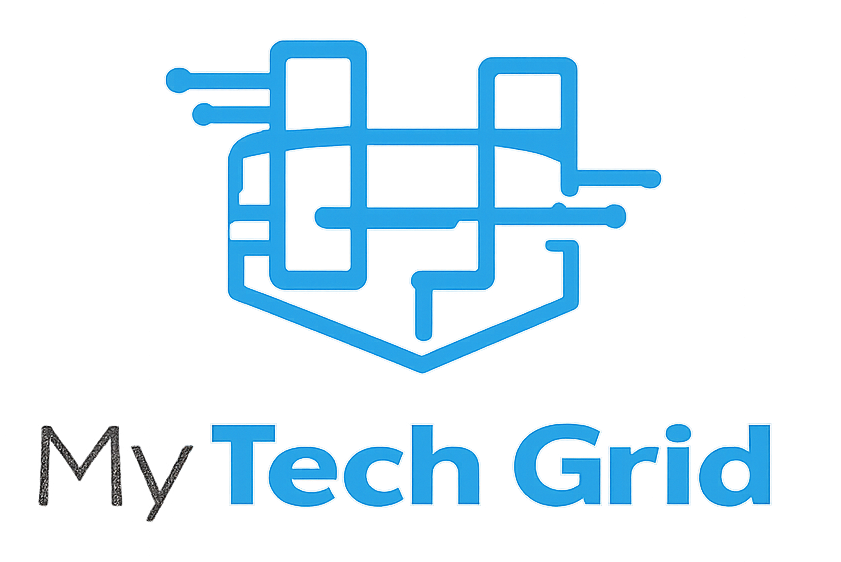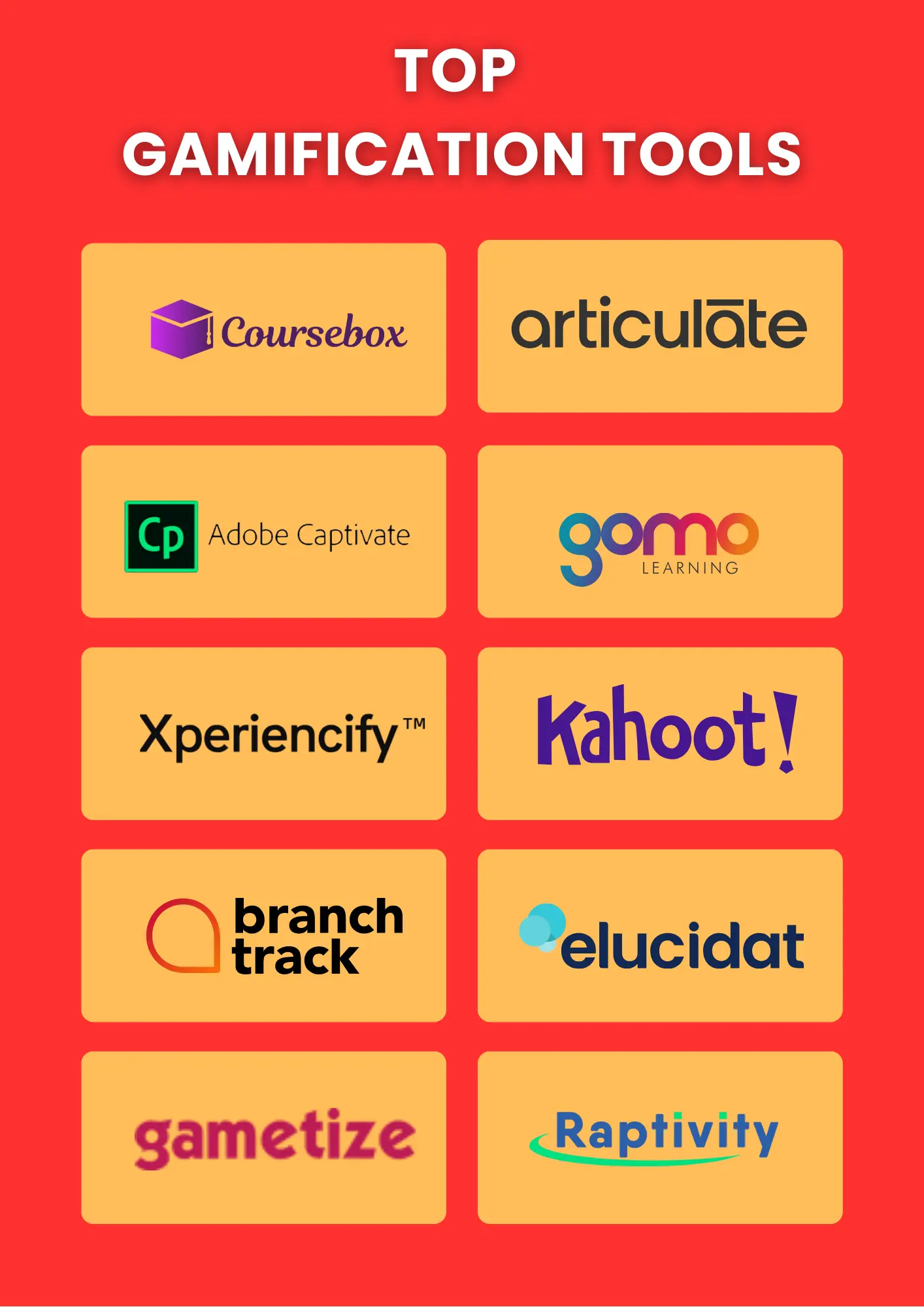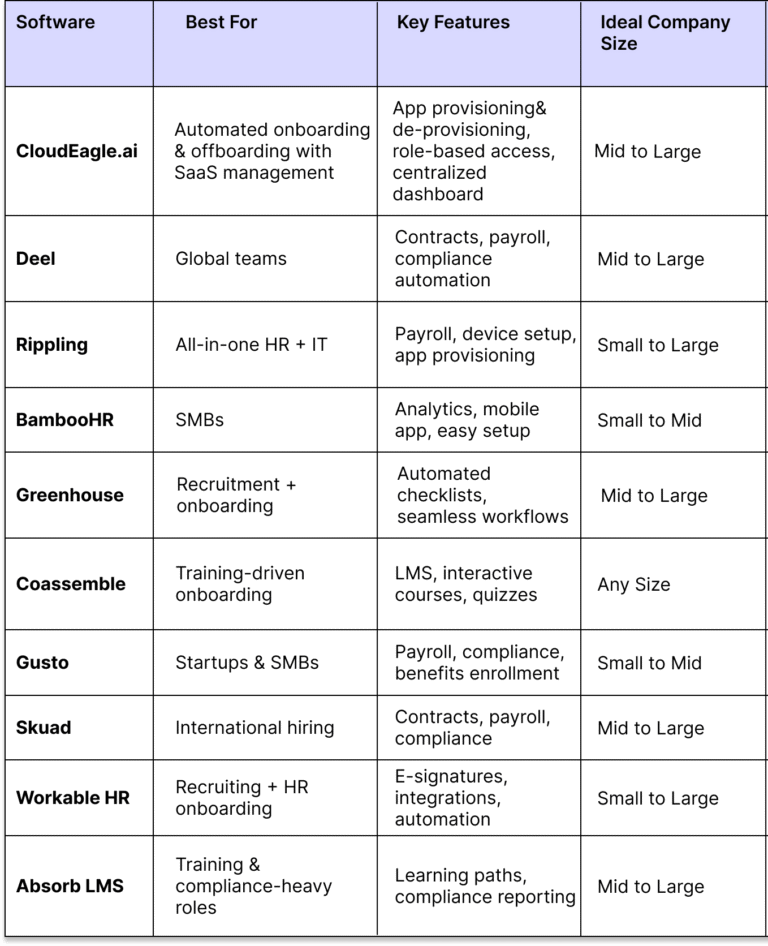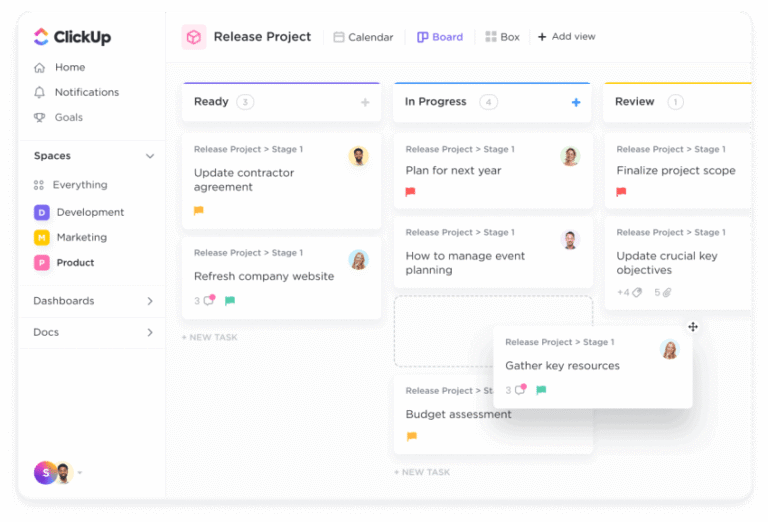Struggling to keep your remote team motivated and connected? You’re not alone.
When your team is scattered across different locations, staying engaged and collaborating smoothly can feel like a challenge. But what if you could turn teamwork into a game—making collaboration fun, rewarding, and something your team actually looks forward to? That’s exactly what gamifying remote team collaboration can do for you.
You’ll discover the best tools designed to bring energy, competition, and connection to your online workspace. Ready to transform how your team works together? Keep reading, because the solution might be simpler—and more exciting—than you think.
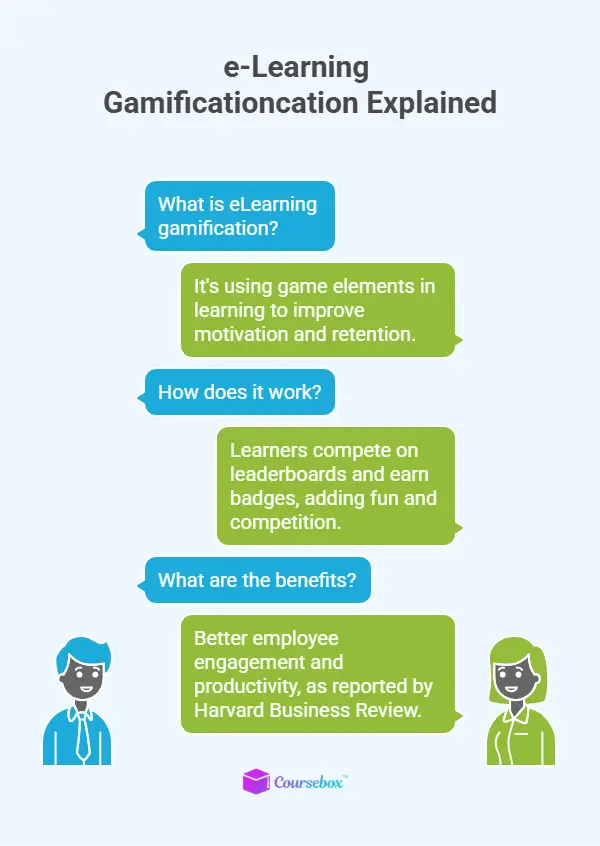
Credit: www.coursebox.ai
Benefits Of Gamifying Remote Teams
Gamifying remote teams brings many benefits to online collaboration. It creates a fun and rewarding environment. This encourages team members to participate actively. The use of game elements makes daily tasks more interesting. It also supports a positive team culture despite physical distance.
These benefits lead to stronger teamwork and better results. Gamification helps overcome common remote work challenges. It improves how teams communicate, collaborate, and stay focused. Understanding these advantages explains why gamification is a smart choice.
Boosting Engagement And Motivation
Gamification increases team members’ involvement in tasks. It uses rewards, points, and challenges to keep interest high. This makes work feel less like a chore. Team members want to complete tasks and earn recognition. It also encourages healthy competition that drives better effort. Motivation rises naturally without extra pressure.
Enhancing Collaboration And Communication
Game-based tools promote better teamwork among remote members. They create clear goals that require cooperation to achieve. Team chat and video features support quick and easy communication. Sharing progress and celebrating wins builds trust and connection. Gamification encourages members to help each other more. It breaks down barriers caused by distance.
Improving Productivity And Focus
Gamification helps remote teams stay on task and meet deadlines. Clear rules and rewards guide members toward priorities. Short challenges and milestones prevent burnout and keep energy up. Tracking progress shows visible results, which boosts confidence. Teams maintain focus even during long projects. This leads to higher output and quality work.
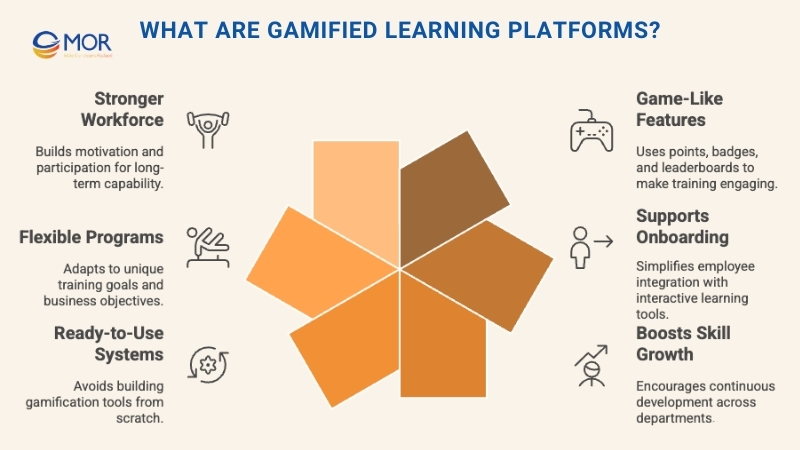
Credit: morsoftware.com
Popular Gamification Tools
Gamification tools make remote team collaboration fun and effective. They encourage participation and boost morale. These tools turn tasks into games with points, badges, and rewards. Teams stay motivated and connected, even from afar. Here are some popular gamification tools used by many remote teams today.
Slack And Pointagram Integration
Slack is a top communication app for remote teams. Pointagram adds gamification features inside Slack. It turns chats and tasks into games with points and leaderboards. Teams compete in real-time and celebrate achievements. This integration keeps team spirit high and work engaging.
Recognify For Recognition And Rewards
Recognify focuses on recognizing team members’ efforts. It makes giving praise and rewards easy and fun. Team members earn badges and points for good work. This tool helps build a positive work culture. Recognition boosts motivation and strengthens team bonds.
Gametize For Interactive Challenges
Gametize creates custom challenges and quizzes for teams. It offers interactive games that improve skills and collaboration. Teams complete missions and earn rewards. This tool makes learning and working together exciting. Gametize helps teams stay productive while having fun.
Collaboration Platforms With Gamification Features
Collaboration platforms with gamification features make remote teamwork more engaging and productive. These tools combine everyday work functions with game-like elements. They encourage participation, boost motivation, and help build stronger team bonds. Teams can track progress, earn rewards, and celebrate achievements together. This keeps remote work lively and interactive.
Microsoft Teams And Workflow Automation
Microsoft Teams integrates chat, video, and file sharing in one place. It adds gamification through badges and points for task completion. Workflow automation helps streamline repetitive tasks. Bots and connectors can trigger rewards based on team activities. This motivates members to stay active and meet deadlines. Teams can customize challenges and track progress easily.
Zoom For Interactive Virtual Meetings
Zoom offers more than video calls. It supports polls, quizzes, and breakout rooms for team engagement. Gamification features include awarding points for participation. Hosts can create fun contests during meetings. These tools make virtual meetings less formal and more dynamic. Teams feel connected and involved despite the distance.
Google Workspace For Cloud Collaboration
Google Workspace combines Docs, Sheets, and Slides for real-time collaboration. It supports gamified workflows by tracking edits and contributions. Teams can set goals and celebrate milestones using comments and notifications. Add-ons and third-party apps bring extra gamification options. This encourages teamwork and keeps projects on track.
Game-based Activities For Remote Teams
Game-based activities bring energy and fun to remote teams. They create chances for team members to connect and work together. These activities boost motivation and improve communication. They break the routine of daily tasks and build trust among team members. Using games online makes collaboration more engaging and effective. Below are some popular game-based activities for remote teams.
Quizzes And Puzzles
Quizzes and puzzles challenge the mind and spark friendly competition. Teams can compete in trivia quizzes about work topics or general knowledge. Puzzle games encourage problem-solving and teamwork. These activities are simple to set up and work well in virtual meetings. They help improve focus and keep team members alert. Quizzes also allow learning in a fun, interactive way.
Virtual Escape Rooms
Virtual escape rooms simulate real-life escape challenges online. Teams solve clues and puzzles to “escape” within a time limit. These activities require communication and teamwork to succeed. They foster creative thinking and collective problem-solving. Virtual escape rooms promote collaboration under pressure. They create memorable shared experiences despite physical distance.
Team-building Games And Competitions
Team-building games bring people together through shared goals and fun challenges. Competitions can include scavenger hunts, charades, or creative contests. These activities encourage social interaction and build camaraderie. They motivate teams to cooperate and support each other. Competitions add excitement and reward participation. Such games help form stronger bonds across remote teams.
Strategies For Effective Gamification
Effective gamification in remote team collaboration needs clear strategies. It improves engagement and productivity. Applying the right approach makes gamification work well for everyone. Focus on clear objectives, communication, and trust.
Setting Clear Objectives And Goals
Define what success looks like before starting gamification. Clear goals help team members understand their tasks. Objectives guide the design of game elements like points or badges. Setting targets motivates employees to stay focused. It also allows measurement of progress and results.
Establishing Communication Norms
Agree on how and when team members communicate. Clear communication rules reduce confusion and delays. Decide if messages need quick replies or can wait. Use tools that support easy and open conversations. Consistent communication keeps everyone aligned and involved.
Fostering Trust And Autonomy
Trust builds a positive environment for gamification. Allow team members freedom to choose how they complete tasks. Autonomy encourages creativity and personal responsibility. Recognize efforts and progress without constant supervision. A trusted team works better and enjoys gamified activities more.
Measuring Gamification Success
Measuring the success of gamification in remote team collaboration is essential. It shows how well the tools and strategies work. Tracking results helps improve engagement and productivity over time. Without measuring, teams might miss signs of low motivation or unclear goals.
Effective measurement focuses on key data and feedback. It involves numbers and opinions from the team. This helps managers understand which game elements inspire the team. It also reveals areas needing adjustment. Here are some ways to measure gamification success clearly and simply.
Tracking Engagement Metrics
Engagement metrics reveal how often team members join games or activities. Metrics include login frequency, task completion, and time spent on challenges. High participation usually means good interest. Low numbers can signal problems with game design or communication. Tracking these metrics regularly helps keep the gamification strategy on track.
Using Leaderboards And Point Systems
Leaderboards show rankings based on points earned. Points come from completing tasks, helping others, or winning challenges. These systems create friendly competition and encourage effort. Watching changes in leaderboard positions shows who is active and motivated. Points and ranks also help reward top performers fairly and visibly.
Gathering Team Feedback
Feedback from team members gives insight beyond numbers. Surveys, polls, or informal talks reveal what players enjoy or dislike. Teams may suggest new game ideas or report problems. Honest feedback helps fine-tune gamification tools to fit team needs. Regularly collecting opinions builds trust and improves participation.
Tips For Fast Implementation
Implementing gamification in remote team collaboration can boost motivation quickly. Fast adoption depends on smart tool choices and smooth setup. Teams will engage more if processes stay simple and natural. Follow clear steps to speed up implementation without delays or confusion.
Choosing The Right Tools For Your Team
Select tools that match your team’s size and work style. Prioritize easy-to-use platforms with clear gamification features. Look for options that support rewards, leaderboards, and challenges. Check if the tools offer mobile access for flexibility. Avoid complex software that needs long training. The right tool feels intuitive and fits daily tasks.
Integrating With Existing Workflows
Link new gamification tools to tools your team already uses. Ensure smooth data flow between apps to save time. Avoid disrupting current processes or creating extra work. Use apps that sync with project management and communication platforms. Setup should be fast with minimal technical help. Keep workflows natural to keep team focus on goals.
Encouraging Participation And Consistency
Motivate team members by explaining gamification benefits clearly. Start with simple challenges to build interest and habit. Reward effort and progress, not just results, to keep morale high. Use reminders and notifications to keep players engaged. Encourage sharing achievements to foster friendly competition. Consistency in play helps gamification become part of daily work.
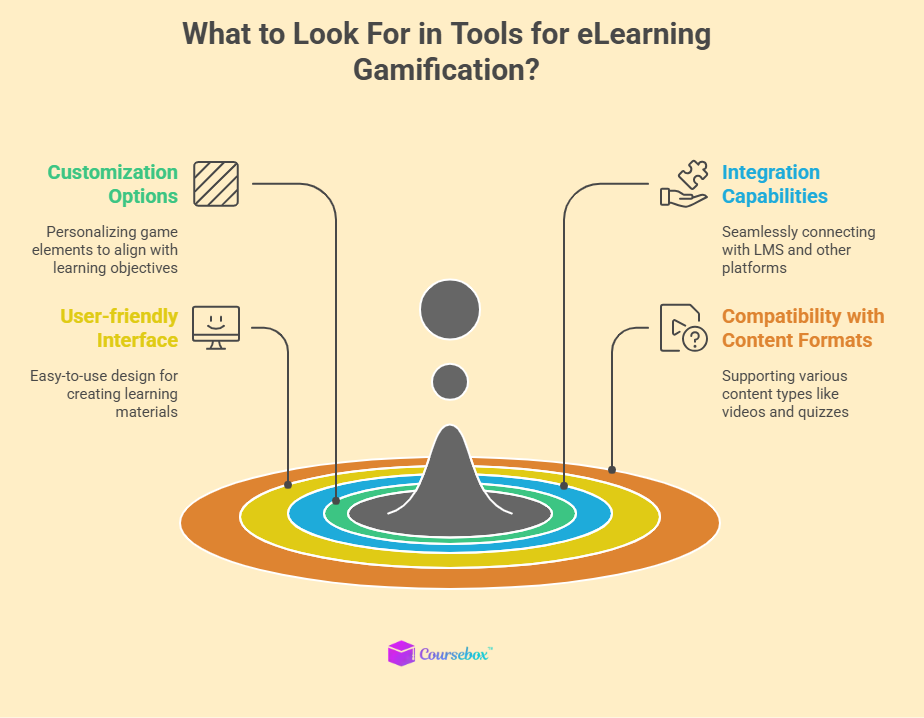
Credit: www.coursebox.ai
Frequently Asked Questions
How Do You Collaborate Effectively With Remote Teams?
Collaborate effectively with remote teams by setting clear goals, using the right tools, maintaining open communication, building trust, and encouraging team bonding. Prioritize asynchronous work and foster autonomy to enhance productivity and engagement.
What’s The Leading Collaboration App For Remote Teams?
Slack leads as the top collaboration app for remote teams, excelling in instant messaging and integrations. Microsoft Teams, Zoom, Trello, Asana, and Google Workspace also rank highly for workflows, meetings, project, and task management.
Which Tool Is Commonly Used For Team Communication In Remote Teams?
Slack is commonly used for team communication in remote teams, offering instant messaging and collaboration features.
How To Have Fun With A Remote Team?
Organize virtual games like trivia, escape rooms, or murder mysteries. Celebrate milestones online. Use gamification tools to boost engagement and team bonding.
Conclusion
Gamifying remote team collaboration brings fun and focus to daily tasks. It helps teams connect and stay motivated from different places. Using simple tools, teams can track progress and celebrate wins together. This makes work feel less like a chore and more like a game.
Choose tools that fit your team’s needs and keep everyone involved. Small changes can lead to big improvements in teamwork. Try adding gamification to boost your remote team’s spirit and productivity.
